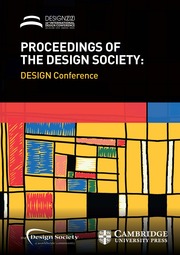Article contents
SUPPORTING ENGINEERING STUDENTS IN ANALYSING SOCIAL SUSTAINABILITY OF A PRODUCT: LESSONS LEARNED
Published online by Cambridge University Press: 11 June 2020
Abstract
Though many engineering schools are integrating sustainability in the curriculum, most are still struggling, especially with social sustainability. The aim with this study was to test a process created to help students work systematically with these issues. Results show that students in the study did indeed benefit from structured process support as their general knowledge level of social sustainability issues as well as their understanding of how to integrate them in a product assessment was very low. Reflections from teaching staff on how to further develop such a process are also shared.
Keywords
- Type
- Article
- Information
- Creative Commons
- This is an Open Access article, distributed under the terms of the Creative Commons Attribution-NonCommercial-NoDerivatives licence (http://creativecommons.org/licenses/by-nc-nd/4.0/), which permits non-commercial re-use, distribution, and reproduction in any medium, provided the original work is unaltered and is properly cited. The written permission of Cambridge University Press must be obtained for commercial re-use or in order to create a derivative work.
- Copyright
- The Author(s), 2020. Published by Cambridge University Press
References
- 1
- Cited by


